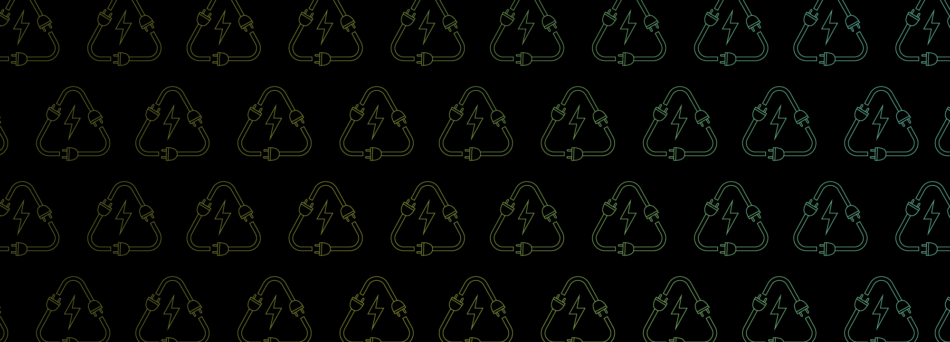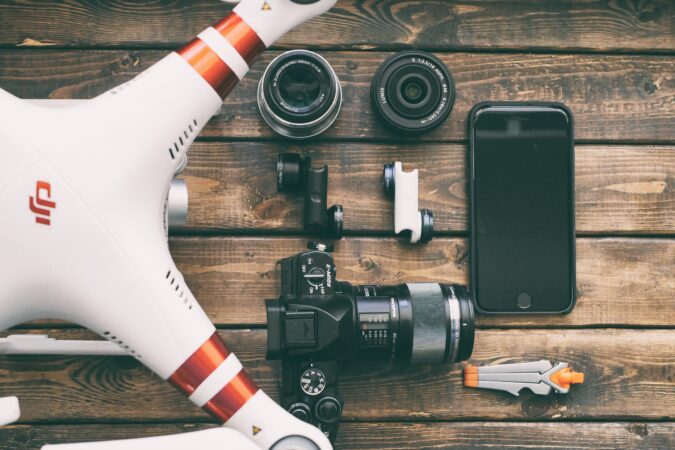
WEEE Waste Collection
Getting rid of electronic waste from your business must be done legally to both protect the environment and your company. In 2014, strict WEEE regulations became law in the UK governing electronic waste disposal. Arrange collection of the WEEE your business produces anywhere in the UK and understand your obligations with Business Waste.
From household appliances to your business’ IT equipment, any old, broken, or obsolete electronic waste needs recycling where possible. Your business has a responsibility to ensure it follows UK law when getting rid of any e-waste. We can advise on what you need to do and help arrange proper WEEE disposal. Call 0800 211 8390 or contact us online for a free WEEE collection quote.
Get a free WEEE collection quote
Get a fast FREE quote for WEEE waste disposal
- Free quote within 1 hr
- Any type of WEEE waste
- FREE bins and delivery
- We cover all of the UK
WEEE
collections & disposal
At Business Waste, we specialise in safe e-waste collections in compliance with the WEEE directive. Whatever your WEEE disposal needs, we can help you take care of them anywhere in the UK. All businesses deal with WEEE disposal, and we’re dedicated to making it as convenient as possible for you with our range of WEEE solutions.
Any product with a battery or plug is usually a WEEE item that can be recycled by the right team of waste providers. Our trained waste management professionals can provide you with a designated waste collection facility (DCF) for the WEEE that your business and your customers produce.
As part of our WEEE solutions, we provide free WEEE bins for you to fill with your old, broken, and obsolete electronic items – you just pay for collection. Arrange a one-off or daily, weekly, fortnightly collection from an accessible place wherever your business is in the UK. Our WEEE collection services can pick up and safely and legally dispose of any kind of e-waste.
Call 0800 211 8390 or contact us online for a free quote for your electronic waste disposal, recycling, and for any other WEEE solutions. One of our experts can answer any questions you have and advise on the right type of WEEE collections for your business.
Electronic waste
bins
Our local waste transport teams can provide your business with all types of electronic waste bins of various sizes to hold WEEE items. Wherever you’re based in the UK, we have a team of waste management providers local to you.
Whether you need to get rid of large appliances like fridges or lots of smaller electronic consumer equipment, we can provide the right sized WEEE bin for your needs. There are a range of types and sizes of WEEE bins, from skips suitable for large items and infrequent collections, to two-wheel bins for less waste or more frequent collections.
Depending on your needs, we can offer daily, weekly, or fortnightly WEEE collections. Explore some of the electronic waste bins available.
Who needs
WEEE recycling?
WEEE disposal and electrical recycling are required by all businesses, although certain industries produce more WEEE and e-waste than others. This varies greatly from manufacturers of electronic equipment that produce by-products or may end up with unusable prototypes, to retailers with damaged electrical items they can’t sell. Either way, electrical recycling is essential.
Any type of business that uses IT equipment, has a kitchen with various appliances, or even just has a TV in their reception will likely need to arrange WEEE disposal and electrical recycling at some point. Key industries that commonly require WEEE collection include:
- Automotive – electronic tools, cleaning gear, and IT equipment
- Catering – hot drinks dispensers, electronic kitchen equipment, and appliances
- Hospitals – dialysis machines, cardiology and other medical equipment
- Offices – IT equipment, photocopiers, and smoke detectors
- Retail – damaged electrical products, consumer goods, and lighting
WEEE regulations
The Waste Electric and Electronic Equipment (WEEE) Regulations 2013 apply to every business that produces WEEE in any form. This could be through manufacturing, importing, distributing, selling, repairing, or simply using electronic and electrical products. They were introduced across the UK in 2014 to reduce the amount of WEEE going to landfill.
Under the WEEE regulations, producers and distributors have a responsibility to finance the collection, treatment, and recovery of their e-waste. Using a licensed carrier for your WEEE collections, such as with Business Waste, is a simple way to ensure your old electrical and electronic items are disposed of in line with WEEE regulations.
It also obligates all businesses that sell electronic or electrical equipment to supply customers with a way to dispose of their old version when selling them a newer one. These regulations apply whether you sell the items in a shop, on the phone, online or by mail order. This must be done in one of two ways, by either:
- Offering a free, in-store take-back service for customers where they can dispose of their old items.
- Creating another free take-back service customers can use.
WEEE compliance
WEEE compliance with the regulations is vital for businesses that produce electrical items and need to provide a take-back scheme. It’s also essential for organisations that find themselves with any kind of WEEE waste. As one of the leading WEEE compliance companies we offer a range of services to fulfil your WEEE obligations. These include:
- Delivering free bins to store WEEE waste.
- Arranging collections of WEEE waste anywhere in the country.
- Offering expert advice to ensure compliance with WEEE regulations for waste disposal.
- Identifying and categorising your WEEE waste types.
- Providing free duty of care certificates for every load of waste removed.
- Recycling as much of your WEEE waste as possible.
Contact us to learn more about how WEEE compliance companies can help your business dispose of any electrical waste safely and legally.
How does WEEE
waste collection work?
-
Select your free bins
It’s quick and easy to organise commercial waste collection for your business.
Simply start by telling us the:
- Type of waste you need removing
- Size of bins you require
- Number of bins you want
We’ll provide you with a free quote.
-
Arrange delivery
When you’re happy with the type, number, and size of free bins, tell us when you need your bins delivering.
Let us know about any access issues where you want the bins delivering – such as locked gates, access codes and times. We’ll get you up and running in no time.
-
Fill up your bin
After the free bins arrive at your chosen location, fill them up with the agreed waste type.
Make sure you remain within any weight limits for the specific waste type and bin size.
-
Get your business waste collected
We’ll arrange waste collection at a time and frequency to suit you and the amount of waste you have.
As featured in…
What is
WEEE waste?
WEEE stands for Waste Electrical and Electronic Equipment. Sometimes called e-waste, this refers to any type of household or business electrical or electronic equipment and appliances that are broken or no longer needed. It essentially covers electric items at the end of their life that need a battery or plug to operate.
WEEE is the fastest growing waste type in the UK, according to the Environment Agency. On 1 January 2014 new WEEE regulations were introduced to the UK that legally require all such waste to be diverted from landfill or incineration. It means producers of WEEE in any form have a responsibility to recycle and reuse any electrical waste where possible.
WEEE regulations apply to just the finished products. This means components such as microchips, wires, and spares do not class as WEEE waste. There are also different bins and processes to follow for battery recycling.

WEEE categories
The Waste Electrical and Electronic Equipment Regulations 2013 include most business or household products that use a plug or battery. This covers everything from a broken washing machine to handheld games consoles. The regulations outline 10 main WEEE categories. Any items that fall under these must be disposed of in line with the regulations.
These WEEE categories are:
- Large household appliances – washing machines, dishwashers, cookers, microwaves, fridges and freezers
- Small household appliances – irons, toasters, clocks, and vacuum cleaners
- Lighting equipment – high-intensity discharge lamps, and straight and compact fluorescent tubes
- Electrical and electronic tools – electric saws, drills, electronic lawnmowers and sewing machines
- IT and telecommunications equipment – laptops and personal computers, telephones, pocket calculators and copying equipment
- Consumer equipment – stereos, radios, televisions, video cameras and musical instruments
- Automatic dispensers – money and hot drink dispensers
- Monitoring and control equipment – thermostats, heating regulators and smoke detectors
- Medical devices – analysers, medical freezers, cardiology equipment and (non-infected) dialysis machines
- Toys, leisure, and sports equipment – games consoles, electric trains and running machines
How to dispose
of electronic waste
Disposal of electrical items must be done carefully. All e-waste is considered too dangerous to send to a landfill site as electronic waste contains toxic materials – such as lead, mercury, and cadmium. Such chemicals tend to leak into the soil when disposed of in landfill, harming ecosystems and potentially polluting water supplies. Instead, e-waste disposal is taken care of in a specialised way.
To dispose of electronics, it’s vital that you comply with WEEE regulations and arrange collection by a licensed carrier to avoid any electrical waste going to landfill. An easy way to do this is with Business Waste – as we provide you with free bins, skips, or containers to fill with your specific electronic and electrical waste items.
Place only your electronic waste in these bins, whether appliances, lighting, IT equipment or anything else. There’s no need to break them down and it doesn’t matter if they’re broken or damaged, as they’re separated into their component parts later. Just ensure no other types of waste are in the bin, as this could cause contamination.
Your e-waste will be collected by a licensed carrier and transported to an Approved Authorised Treatment Facility (AATF), where as much as possible is recycled. This varies depending on the type of electrical items, but generally e-waste is dismantled and, where possible, reused.
What happens to
WEEE waste?
Electronic equipment and appliances contain a wide range of materials – such as metal, glass, plastic, ceramic, and more. Some of these materials may be hazardous, like mercury and lead, which must be treated separately as hazardous waste, adding to the complications of recycling WEEE.
Due to this complex make-up, after transportation to an Approved Authorised Treatment Facility, the first step is disassembly. For items and appliances containing fluids, these are drained, and any dangerous or hazardous chemicals extracted – such as refrigerants in fridges and freezers, or mercury in fluorescent lighting equipment.
Using the latest technology, our WEEE recycling involves separating and dismantling the items. This ensures any parts that can be recycled are sent to various industries for reprocessing or reuse directly, including metals, plastics, precious metals and more. It provides you with peace of mind that your organisation is fully compliant with the WEEE regulations.
Recycling electronic waste happens in a few ways therefore, when the individual components enter their own waste streams. For example, glass waste from broken computer screens may be crushed and reformed, while plastic from old mobile phones can be shredded. The actual electronic components are broken down and the metals they contained often melted.

WEEE recycling
facts
Every year an estimated two million tonnes of WEEE products are disposed of. Large household appliances such as ovens and fridges make up 40% of this. Recycling of e-waste in the UK has increased since 2010, reaching a WEEE recycling rate of 67% in 2010 – mainly driven by the implementation of WEEE regulations in 2014.
The average person in the UK creates 3.3 tonnes of WEEE in their lifetime. Around 10 million tonnes of electronic and electrical products are purchased in the UK each year, of which about a quarter is IT equipment and consumer digital devices. This contains around £1.5 billion worth of precious metals.
Read our reviews
Having worked closely with Asha-Jade Preston over the past 6 months in servicing various sites with their electrical waste requirements, I’ve found her to be extremely efficient and effective in communication when organising jobs with a very professional and speedy approach to day-to-day activities. Thanks very much for your custom. Bravo!Ed Starnes
WEEE waste
FAQs
-
What e-waste can be recycled?
Pretty much all WEEE or e-waste items can be recycled to some extent. If your item uses a plug, charger, or batteries, then it’s recyclable. If it carries the WEEE wheelie bin logo (a black symbol denoting a crossed-out wheelie bin, put in place by the European Union), then it can also be recycled.
Some of the common types of e-waste you can recycle include:
- Computers and laptops
- TVs
- Household appliances
- Lighting equipment
- Toys and games consoles
-
How do I dispose of computers and laptops?
IT recycling can be one of the biggest problems for both businesses and households when it comes to WEEE disposal. Computers contain a host of hazardous chemicals and materials, including lead, mercury, chromium, beryllium, and cadmium. If your old computer can’t be re-homed or is damaged beyond repair, then you can consider computer disposal.
Only approved centres can recycle computers though. At Business Waste we can take care of computer disposal for your business as part of our WEEE collections. Our e-waste collections service will pick up your old PCs and laptops and make sure they’re delivered to approved recycling centres.
-
Are batteries considered WEEE?
Batteries are everywhere and require separate disposal with battery disposal and recycling. We can provide special battery bins to get rid of used batteries – ideal if your company uses a lot of electrical and electronic devices. All single-use batteries contain various recyclable materials, such as AAA and AA batteries, button batteries (for a watch), mobile phone batteries, laptop, and power tool batteries.
-
Are USB cables WEEE?
Generally, components such as USB cables are exempt, as the WEEE regulations only apply to finished products. However, accessories including keyboards and USB cables may class as WEEE waste when they don’t function by themselves and must be used with another product. Speak to our team for help if you’re unsure whether your old USB cables can go in a WEEE bin.
-
What are the effects of electronic waste?
If electronic waste is dumped in landfill the hazardous and toxic substances some items contain – like lead and mercury – can leach into soil and water. This adds to pollution, which negatively affects the surrounding environment and health of those living and working nearby.
The World Health Organisation (WHO) claims that people trying to recover precious metals from e-waste in landfill could be exposed to a thousand harmful substances. This can lead to all sorts of health complications. Recycling and proper disposal of electronic waste avoids it ending up in landfill and potentially harming humans and the environment.
-
Can you put electrical items in the bin?
Electrical items and any products that use batteries should never be put in a bin. Disposal of electrical items should be done by returning them to the retailer or taking them to a recycling centre when getting rid of household electrical waste. Businesses should arrange WEEE collections of any old electrical items.
Proper disposal of electrical items is essential to avoid the waste ending up in a landfill, where any hazardous materials can leach into the ground, water, and air. Recycling old electrical items ensures the hazardous elements are treated and disposed of safely, while any precious metals are recovered and reused.
-
How can I recycle electronics at home?
Recycling electronics from your home is possible at a few places. Check if you can return the item to an electrical retailer or the manufacturer, as many offer a take-back scheme. Some provide collections or returns in-store, and many deliver this service even if you didn’t buy the product from their shop.
They should take back your old electrical item, whether it works or not, and send it for recycling. There are more than 10,000 drop-off points in the UK as part of the scheme. Recycling electronics can also be done at many household waste recycling centres that have specific WEEE bins.
Check with your local council or authority, as some even offer collection from your home. You can also use reliable waste collection services such as those available through Business Waste for recycling electronics from your household.
Get your free WEEE waste collection quote
Get a fast FREE quote for WEEE waste disposal
- Free quote within 1 hr
- Any type of WEEE waste
- FREE bins and delivery
- We cover all of the UK